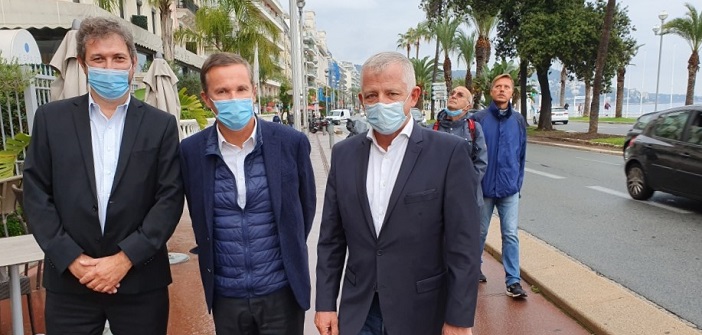He had kept a low profile after his defeat in the municipal elections of March-June when his list was not in a position to be present in the second round.
But “I was trained for combat, so I do not give up, I feel the duty to lead this fight,” says Benoît Kandel, explaining his candidacy as the head of the list for the party Debout la France (DLF) led by Nicolas Dupont-Aignan for the regional elections scheduled for March 2021.
The former gendarmerie colonel has been in politics since 2008, with varying fortunes. Initially elected on Christian Estrosi’s list, he broke away and was elected in 2014 to the Nice municipal council on a ‘various right’ list. As mentioned, this year he missed the opportunity to be present in the Nice legislative assembly.
A man of the right, registered with the CNIP, he chose and was chosen to engage in a new battle under the colors of a party whose political stance is “unambiguous”, as he claims during a press presentation in the presence of the national president and departmental secretary Jean-Marc Chipot, who will most likely be on the departmental list.
Starting well in advance of the electoral deadline, Benoît Kandel will have all the time he needs to organize contacts with departmental leaders and attract all those disappointed by Macronism and the Republicans who are in full doubt to his fold.
“The moment is more than ever favorable,” intervenes Nicolas Dupont-Aignan in his support, France is in an economic and social crisis but especially a moral one. “It needs to hear clear and strong words. There is a space between the National Rally discourse and the cracks, even more a fracture, between the Macron-compatible Republicans like Estrosi and those who advocate for a more rightist line. These doubts create a harmful confusion for voters. Our discourse could interest them.”
Talking about a program at this stage is a bit premature. However, Benoît Kandel has sketched its first outline: regional transport (TER) particularly the Nice-Cuneo line, economic support for regional SMEs, and professional training for young people.
Naturally, the grim current events also highlight the issue of security, or rather its opposite, insecurity. While acknowledging that it is not a competence of the regional collectivity, Benoît Kandel has not refrained from advocating for strong measures to counter immigration which is the basis of Islamism and its abject acts.
Choosing to bet on the weaknesses of other parties rather than his strengths – in the 2015 elections, DLF had obtained a meager score (2%) – seems like a gamble, akin to betting on red or black at the roulette table.
“The situation is no longer the same,” objects Nicolas Dupont-Aignan, “things have changed and our discourse fits with the current context.”
Strengthened by this conviction, he dismisses any hypothesis of alliance to maintain themselves in the second round and thereby have the chance for candidates from his list to sit on the benches of the regional assembly: “we will be in the second round!”
It is true that if one does not believe in their own chances, how can they convince others?


